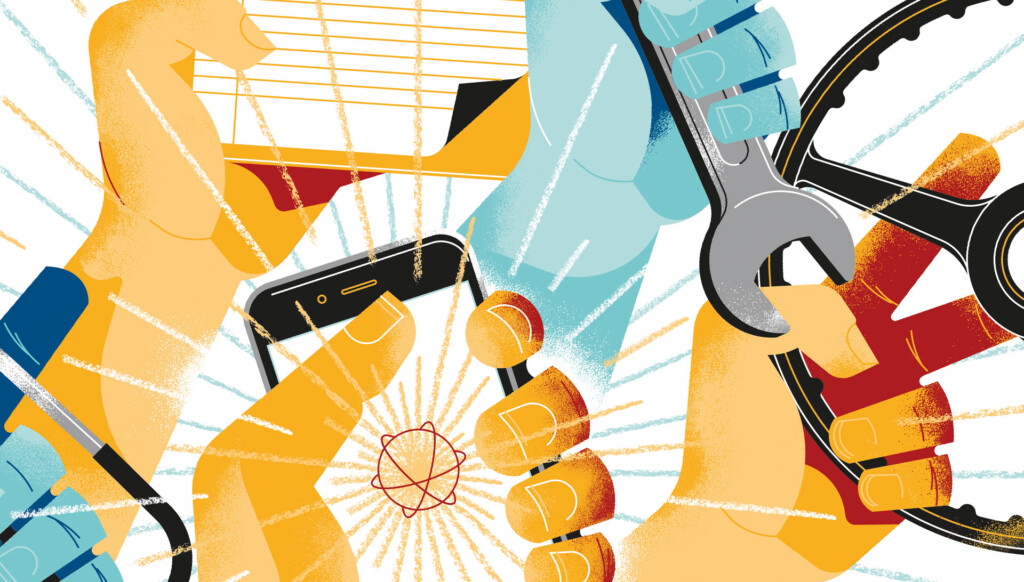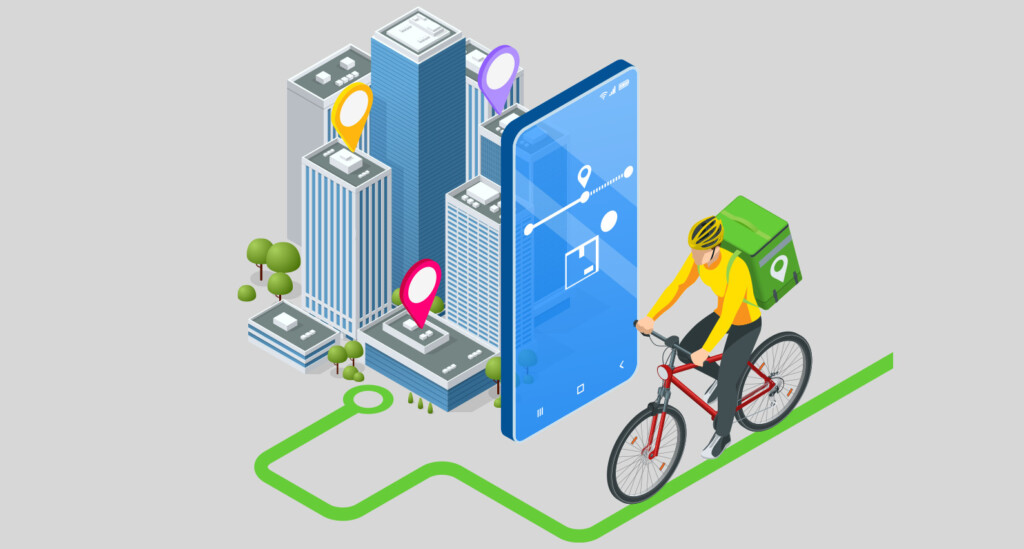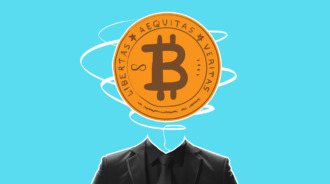

Technically, craftsmen and artisans in medieval Europe were gig workers. Same with Gold Rush prospectors and Wild West cowboys. Fast forward to the 21st century, and gig employment has undergone a transformative evolution. Today, gig work covers a diverse range of industries and occupations, from ride-sharing drivers to freelance writers and beyond. For Binomo traders, staying in the know about the economy is key!
In this article, let’s travel through the gig economy’s past, present, and future.
When did the gig economy start?

First, let’s clarify the terminology.
The gig economy is characterized by freelancers taking on short-term assignments or tasks. The term was coined during the 2009 financial crisis to describe workers who held multiple jobs. Over time, it evolved into a free-market system where independent workers are hired for temporary positions.
Two key developments in 2008 and 2009 contributed to the gig economy’s growth. First, Airbnb was founded, and it allowed people to rent out their properties to travelers. Second, Uber introduced a groundbreaking (at the time) ride-sharing app that created job opportunities for drivers and provided a new transportation service. Other ride-sharing platforms like Lyft and Cabify soon followed suit.
Concurrently, freelancing websites continued to thrive and attracted more individuals to the gig economy. This trend continued to gain momentum throughout the 2010s, transforming the way people work and leading to the gig economy becoming a cornerstone of companies like DPD, Amazon, Upwork, Etsy, and more.
The gig workforce and what they think the digital revolution
Independent workers in the gig economy come from diverse backgrounds — spanning high-earning professionals to those with lower incomes, like delivery drivers and short-term rental hosts. Many do gig work alongside regular jobs, especially during busy times like holidays.
While gig workers vary in age, education, and income, they tend to be younger and earn less. About half of immigrants are gig workers, according to McKinsey.
People choose gig work for different reasons — some out of necessity to support their basic needs, which have increased; others no longer see it as a way to earn extra money, making gig work more serious. For some, it’s about enjoyment, especially for high earners, while others value the freedom it offers.
Surprisingly, gig workers are very optimistic about their economic opportunities. They score higher than traditional workers and the national average on the McKinsey Economic Opportunity Index. This optimism is strongest among those who enjoy and value the flexibility of gig work.
The role of digital platforms
Technology has made remote work easier, with ride-sharing and food delivery platforms rapidly expanding, especially in the last five years. These platforms connect a large pool of workers to potential customers, and remote collaboration tools have made it simple to work with freelancers.
Digital platforms come in various forms, with the most common examples being providing information to workers and connecting them across distances. They aren’t known to directly ensure worker rights. But they reduce information gaps, empower workers to make informed choices, and push businesses to improve conditions.
No one’s denying that online platforms are crucial in this economy, but they must be designed with care. Some platforms like UrbanClap in India and Domestly in South Africa prioritize worker welfare by ensuring minimum wages or consistent earnings. However, profit-driven platforms may prioritize their own profits over worker well-being.
To adapt to the platform economy, institutions need to change, too. Some people believe platforms should connect workers with unions, provide information about worker rights, and enable reporting. These platforms can help improve conditions in less organized sectors by supplying valuable labor market data.
What does the current situation look like? The Oxford Internet Institute estimates over 160 million people worldwide now work as independent contractors through online platforms. However, this gig work tends to lack the protections of traditional jobs.

Job security in the gig economy

Job security in the gig economy is a bit different. Workers who find jobs through digital platforms or even elsewhere usually don’t have the same level of job security or benefits like health insurance, paid leave, or retirement funds that come with traditional employment.
That said, the idea of job security has shifted, partially because of lockdowns in 2020-2021. Traditional jobs, once seen as very secure, turned out to be not as safe as people believed. Many experienced layoffs and furloughs, which made them question whether these “safe” jobs were actually stable. This period highlighted the need for flexibility and control over one’s career, and for some, it ranks higher than job security.
In this changing landscape, time has become more valuable for workers. In gig work, you get to choose what you do, giving you more control over your schedule.
Perhaps job security is non-negotiable for you. If so, you might find yourself wondering how to transition from the gig economy to more traditional employment. But let’s continue exploring the gig economy, why not?
Government and regulation
Government involvement in protecting gig workers varies worldwide. In the US and UK, the responsibility usually falls on full-time employers to provide worker benefits, whereas Scandinavia’s flexicurity model naturally supports gig worker welfare. For countries leaning towards full-time employment safety nets, governments are exploring new funding models for gig workers’ protections in partnership with the private sector.
In India, over 290 million people have already registered for an online government portal that provides gig workers with identity cards, biometric data, and skill records. The government plans to start offering state-funded medical and accident insurance, along with a complaints mechanism, for gig workers. In Australia, recent legislation ensures gig workers receive the minimum wage, penalty rates, and superannuation benefits.
If applicable, make sure you’re receiving the protections and benefits that your government offers to gig workers.
What it means for businesses and workers
The gig economy has different impacts on businesses and workers. For businesses, it’s great because they can hire skilled contractors worldwide without worrying about training or employee benefits.
However, for workers, it can be a mixed bag. As you already know, freelancers enjoy flexibility in their work hours and locations. Some even make more money than traditional employees. But, on the other hand, full-time job opportunities may become scarcer. Freelancers also face higher taxes, no retirement or health benefits, and no paid leave.
Pros of gig economy:
- Flexibility
- Global opportunities
- Specialized skill
- Potential for higher earnings
- Diverse work experience
Cons of gig economy:
- Job insecurity
- No employee benefits
- Financial responsibility
- Increased competition
- Uneven income
The future of work

Some believe that the gig economy is here to stay and will continue to expand rapidly. They argue that global technological progress and the increasing automation of various industries will shift the tides completely. Perhaps even to the point of eventually replacing traditional labor markets.
However, some argue that the gig economy’s key feature is not technology but the problems faced by gig workers. They stress that workers like agency employees, underpaid caregivers, and lecturers on unstable contracts suffer due to the lack of proper workplace rights and protections.
The key question is this: how can companies benefit from the gig economy’s flexibility while ensuring the welfare of their workers? The common argument is that businesses should acknowledge their role as employers and ensure job security, fair pay, good working conditions, and the same employment rights found in other industries. The government is also instrumental in enforcing these policies when needed.
By the way, if you’re curious, trading can sometimes exhibit gig economy traits, but it’s not a perfect fit for the traditional gig work model. Anyway, staying informed is vital for making the most of your Binomo experience. When you understand the gig economy’s dynamics and its impact on the broader economy, your analysis becomes more comprehensive. Stay curious!
Sources:
The gig economy: an avenue for flexible working? University of Derby
Freelance, side hustles, and gigs: Many more Americans have become independent workers, McKinsey
The gig economy: the future of work or a step backwards? The University of Queensland








